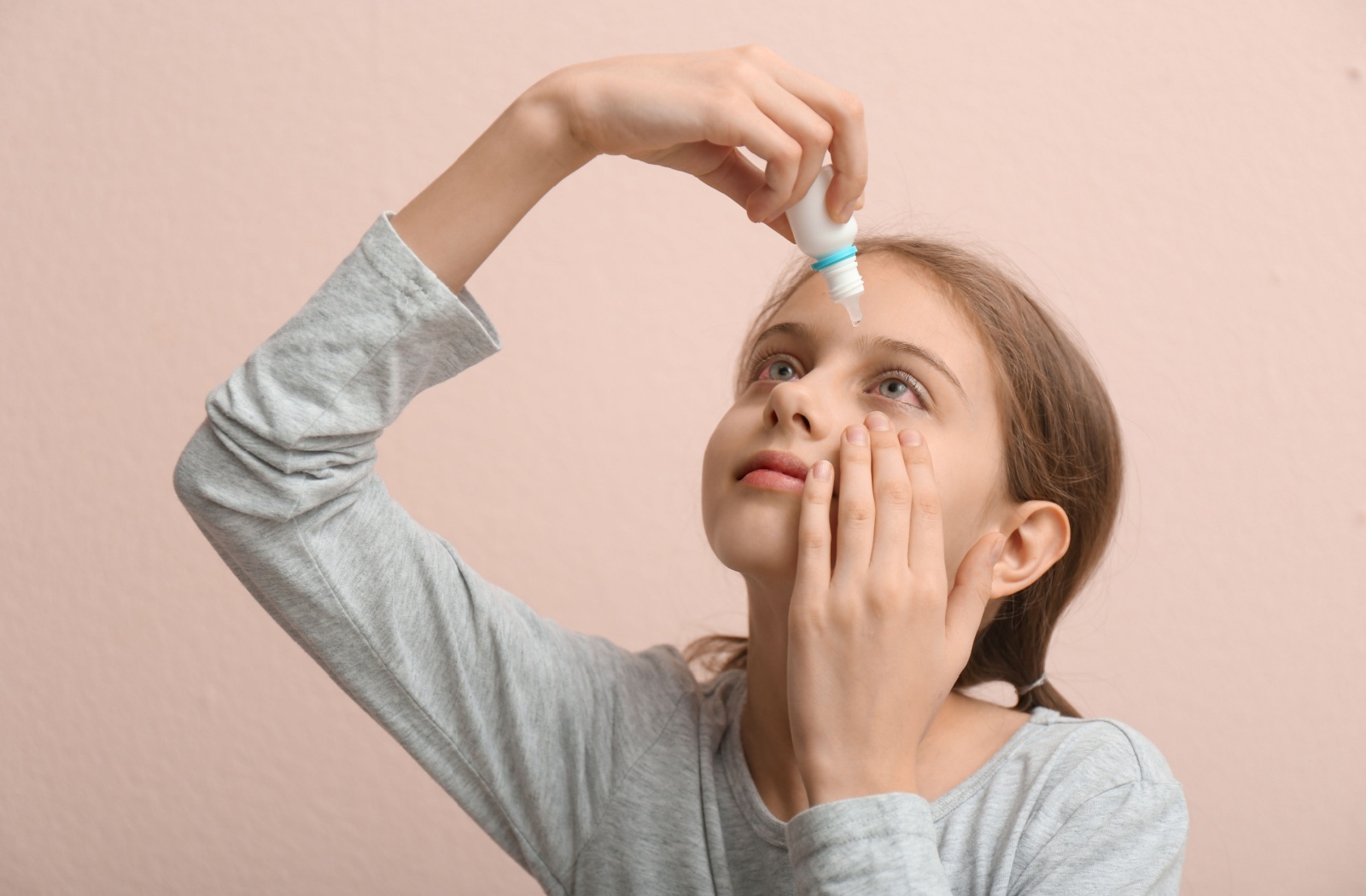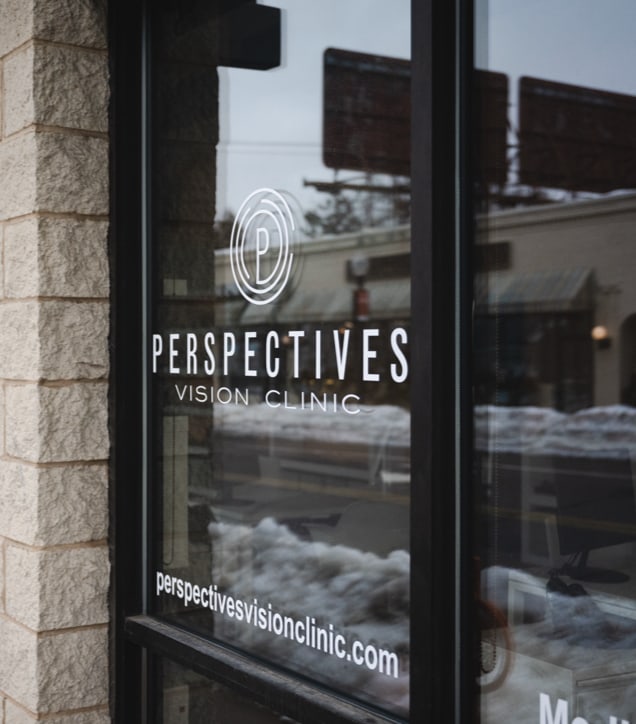Ensuring your children’s eye health is vital as it can significantly impact their learning and overall development. From occasional irritations like dry eyes to more serious conditions, eye problems in kids are common but often manageable. Eye drops are an effective treatment for many of these eye problems, and fortunately, kids can use most eye drops.
It’s important to note that while eye drops can be used for many things, they aren’t a one-size-fits-all answer. So, it’s crucial to consult your child’s eye doctor if you’re unsure whether they should use a particular type of eye drops.
What Are Eye Drops & How Do They Work?
Eye drops are liquid medications designed to deliver the treatment directly to the eyes. They can serve various purposes, such as moisturizing, treating infections, relieving allergies, or reducing inflammation.
But not all eye drops are the same. Here are a few common types you may encounter:
- Artificial tears: Artificial tears or lubricating eye drops are used for dry eyes; these are typically safe for extended use and help lubricate the eyes. Preservative-free formulas are often easier on sensitive eyes.
- Antibiotic eye drops: An eye doctor can prescribe these eye drops for bacterial eye infections like conjunctivitis or pink eye.
- Antihistamine eye drops: These are specialized eye drops for relieving allergies such as red, itchy eyes caused by pollen or pet dander.
- Steroid eye drops: These eye drops have specific applications, such as in managing inflammation, but require close monitoring by your child’s eye doctor.
Understanding the purpose of the medication ensures it’s used appropriately for your child’s symptoms.
Can My Child Use Eye Drops?
The short answer is yes, but under specific conditions and with proper guidance.
Most over-the-counter (OTC) eye drops are safe for occasional use in children, but prescription drops should always be used strictly under medical supervision. Kids’ eyes are typically more sensitive than adults’, so it’s essential to ensure that the drops are both age-appropriate and necessary.
Common Eye Conditions in Kids That Require Eye Drops
Here are a few eye issues in children where eye drops may play a significant role:
- Conjunctivitis (pink eye): Eye drops often help manage bacterial or allergic conjunctivitis.
- Dry eye syndrome: Artificial tears can soothe irritation caused by screen time or dry air.
- Eye allergies: Antihistamine eye drops can reduce itchiness and redness.
- Eye injuries or foreign particles: Sterile saline drops can help remove debris or soothe irritation. Or antibiotic eye drops may be used if there is an infection starting.
Correct Dosage & Administration
When giving eye drops to kids, always use the dosage recommended by your pediatrician or eye doctor. Avoid exceeding the prescribed number of drops, which can cause unwanted side effects or reduce effectiveness.
Possible Side Effects & Precautions
Even safe medications can have side effects. Minor side effects of eye drops can include:
- Temporary stinging or burning
- Blurred vision after administration, typically temporary
- Allergic reactions, such as increased redness or itching
It’s essential to monitor your child for any adverse reactions and consult your doctor if something feels off.
Tips for Administering Eye Drops to Kids
Small children may resist eye drops, but these tips can make the experience more manageable for both of you:
- Use calm, reassuring tones to explain why the eye drops will help them
- Have them lie down in a comfortable position
- Wash your hands thoroughly to maintain hygiene
- Tilt your child’s head back and gently pull down their lower eyelid to create a small pocket for the drops
- Instill the drops quickly and efficiently, avoiding direct contact with the eye to keep the dropper sterile
Are There Alternatives to Eye Drops for Kids?
Not all eye problems require eye drops. Lifestyle changes and non-pharmacological treatments can help maintain or improve eye health.
Non-Medicated Solutions
A few non-medical solutions include:
- Cold compress: For swelling or irritation caused by allergies or minor injuries
- Warm compress: Helps with blocked tear ducts or mild infections
- Sterile saline washes: Useful for flushing out foreign particles or allergens
Incorporate Eye-Friendly Habits
We’re only as healthy as our habits:
- Encourage breaks during screen time to reduce eye strain
- Make sure your child wears sunglasses outdoors to protect against UV rays
- Serve a diet rich in eye-healthy nutrients like Vitamin A and Omega-3 fatty acids
These approaches often complement medical treatment, boosting long-term eye health.
Discuss Eye Drop Options with Your Child’s Eye Doctor
Part of caring for your child’s vision is addressing issues early. And while eye drops can be beneficial for treating specific conditions, they should always be used responsibly. Consult your child’s eye doctor to determine the best course of action.
At Perspectives Vision Clinic, we’re committed to helping your family maintain optimal eye health. Call our team today and book an appointment for your child with one of our experienced eye doctors if you have any concerns with their vision or need clarification about which eye drops they should use.










